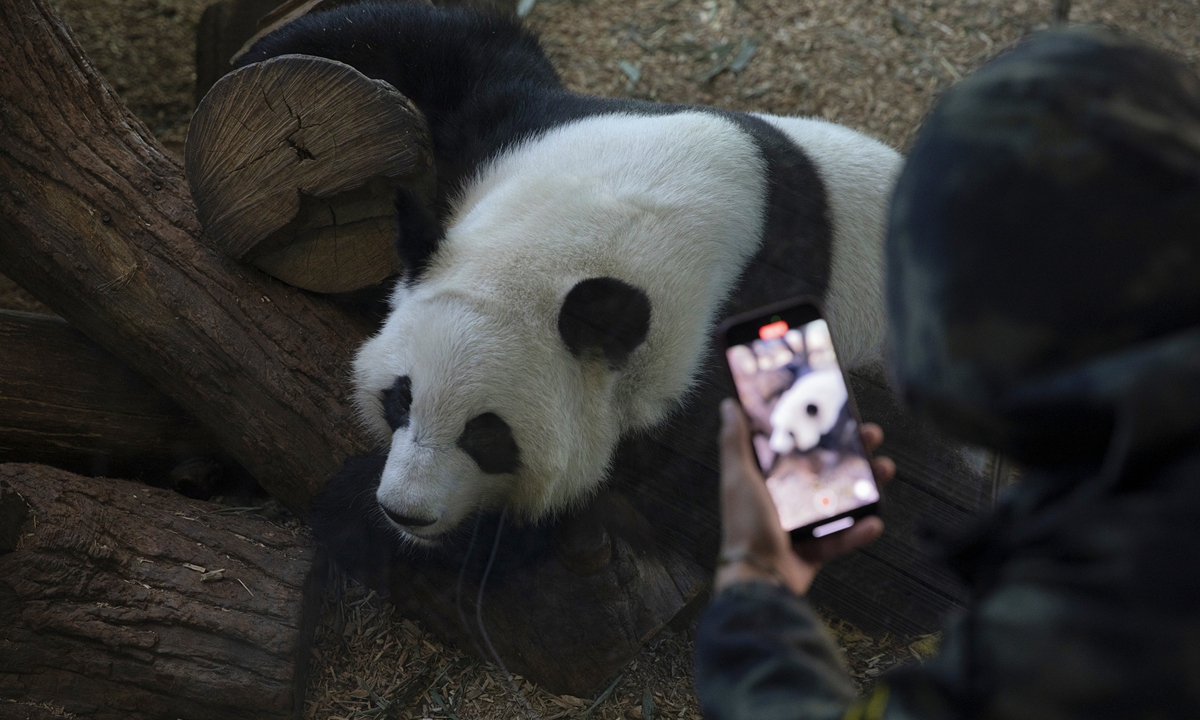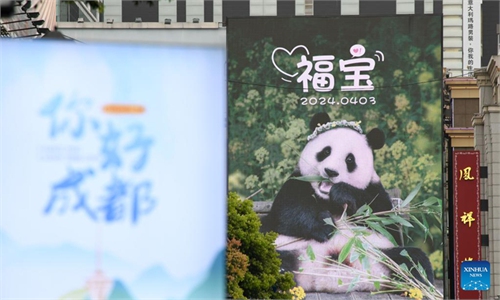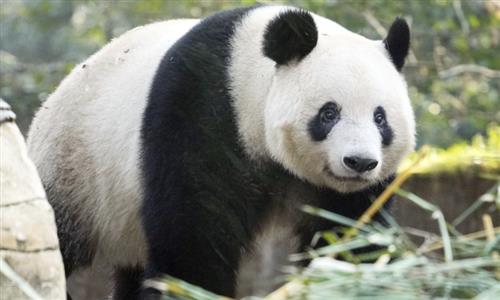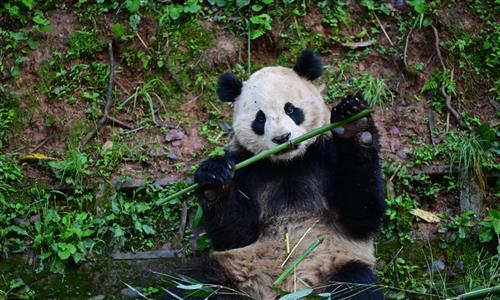Chengdu research base assures the public that Atlanta based pandas remain in good health

A man records a video of one of the Giant Pandas as people visit Zoo Atlanta from far and wide to see the four Giant Pandas Lun Lun, Yang Yang, Ya Lun and Xi Lun in indoor and outdoor habitats in Atlanta, Georgia February 2, 2024. The Zoo Atlanta pandas are the only pandas that can be seen in the United States and their loan from China ends this year. Photo: VCG
The Chengdu Research Base of Giant Panda Breeding released a statement on Saturday to dispel public concerns over the health condition of a panda couple living at Zoo Atlanta in the US, saying that the two pandas are in good health and the research base is maintaining smooth communication with the zoo to tackle problems arising with the pandas.
According to the statement released via the WeChat account of the research base, giant panda enthusiasts have been concerned about the physical condition of the male panda Yang Yang and female Lun Lun following a viral video showed Yang Yang foaming at the mouth, vomiting, suffering diarrhea, and even appearing unconscious.
When giant pandas engage in extensive physical activities or move around a lot, they may develop foam around their mouths, which was cited as the reason by both US and Chinese panda specialists, said the statement.
The research base also noted that both Chinese and the US experts confirmed that Yang Yang was discharging feces wrapped by mucus formed in its intestinal tract through its mouth, which was misunderstood as vomiting by panda fans.
Giant pandas discharging mucus is caused by mild intestinal discomfort which often accompanies behaviors such as vomiting, crouching and refusing to eat. However, after they finish discharging the mucus, they will resume their normal diet with no ongoing negative effects, it said.
In addition, both the Chinese and the US teams confirmed that Yang Yang did not faint but was just lying down for rest.
In addressing Yang Yang's suffering from "diarrhea," the Chengdu research base explained that giant pandas' feces may appear in a variety of shapes and colors depending on different parts of bamboo they consume.
Both Chinese and US researchers confirmed that the "diarrhea" shown in the video is actually a mixture of Yang Yang's feces, bamboo shoots and urine, since giant pandas may have more watery excrement and softer stool with no solid forms after they consume bamboo shoots and foods with higher moisture content.
The research base dispelled public concern that the giant panda couples are not fed properly, leading to them gnawing on the walls of their enclosure, explaining that sniffing, nibbling, rubbing and scratching are common behaviors of giant pandas when exploring their environment.
The Zoo Atlanta prepares an ample supply of food and detailed diet plans. Each giant panda is fed more than 40 kilograms of bamboo or bamboo shoots per day. In addition, the zoo also provides small amounts of fruits and vegetables such as apples, bananas, sweet potatoes, as well as a designated amount of high-fiber biscuits as supplements, following the feeding principle of "small amounts multiple times and coarse before fine."
The Chengdu research base noted that Yang Yang and Lun Lun have never been made to go hungry while living in the US.
Both Yang Yang and Lun Lun were born in Chengdu in 1997 and arrived at Zoo Atlanta on November 5, 1999 on a 10-year loan based on the agreement between China and the US on cooperative research on giant pandas, according to a report by the Xinhua News Agency. In December of 2009, the lease was extended for another five years based on a renewed agreement by the two sides.
According to the zoo's website, Yang Yang has playful and easygoing character. A news report in July of 2003 described Yang Yang chasing peacocks within its enclosure and pulling out their feathers revealed its mischievous nature.
The panda couple have produced a total of seven offspring while at the zoo, with five of their offspring having returned to China per the terms of the loan agreement. According to the zoo, the giant panda loan is set to expire in late 2024. All four of the pandas currently at the zoo, including Yang Yang, Lun Lun, and their offspring Ya Lun and Xi Lun, are expected to return to China this year.
The Chengdu research base said that arrangements for the giant panda family's return to China is still ongoing.
Global Times



